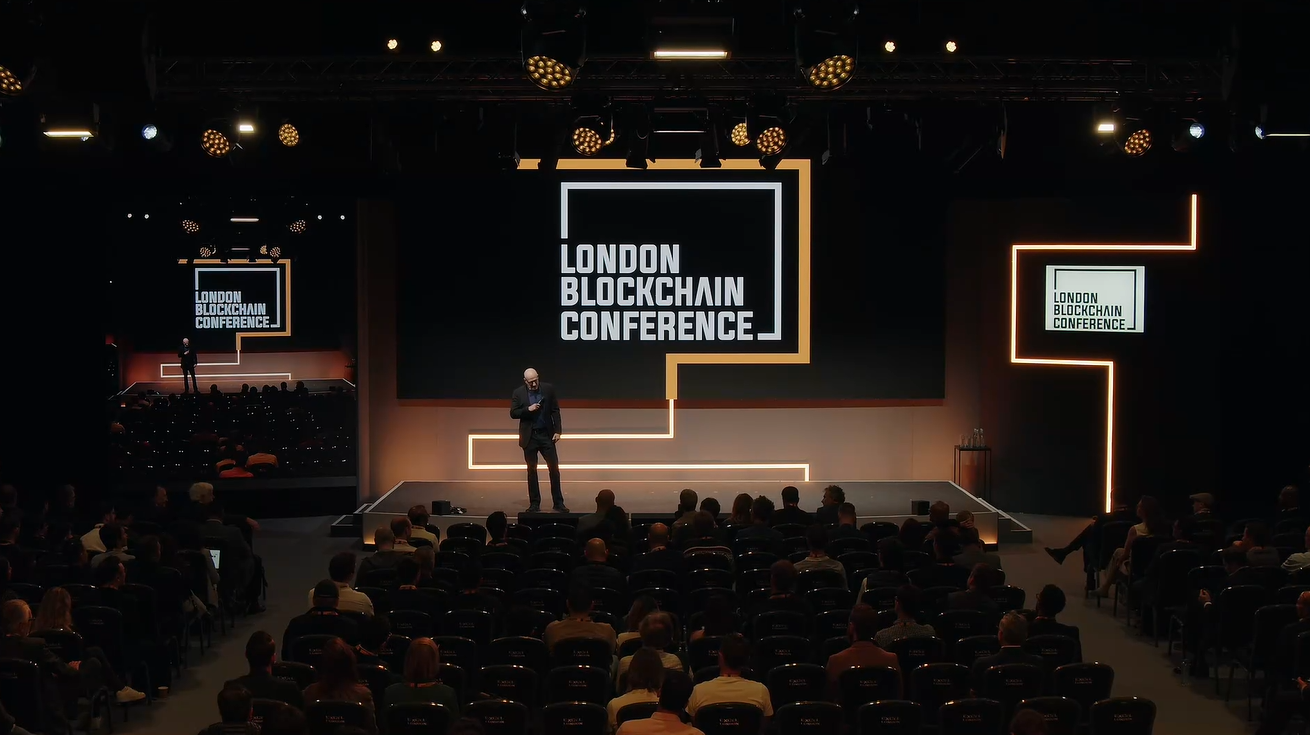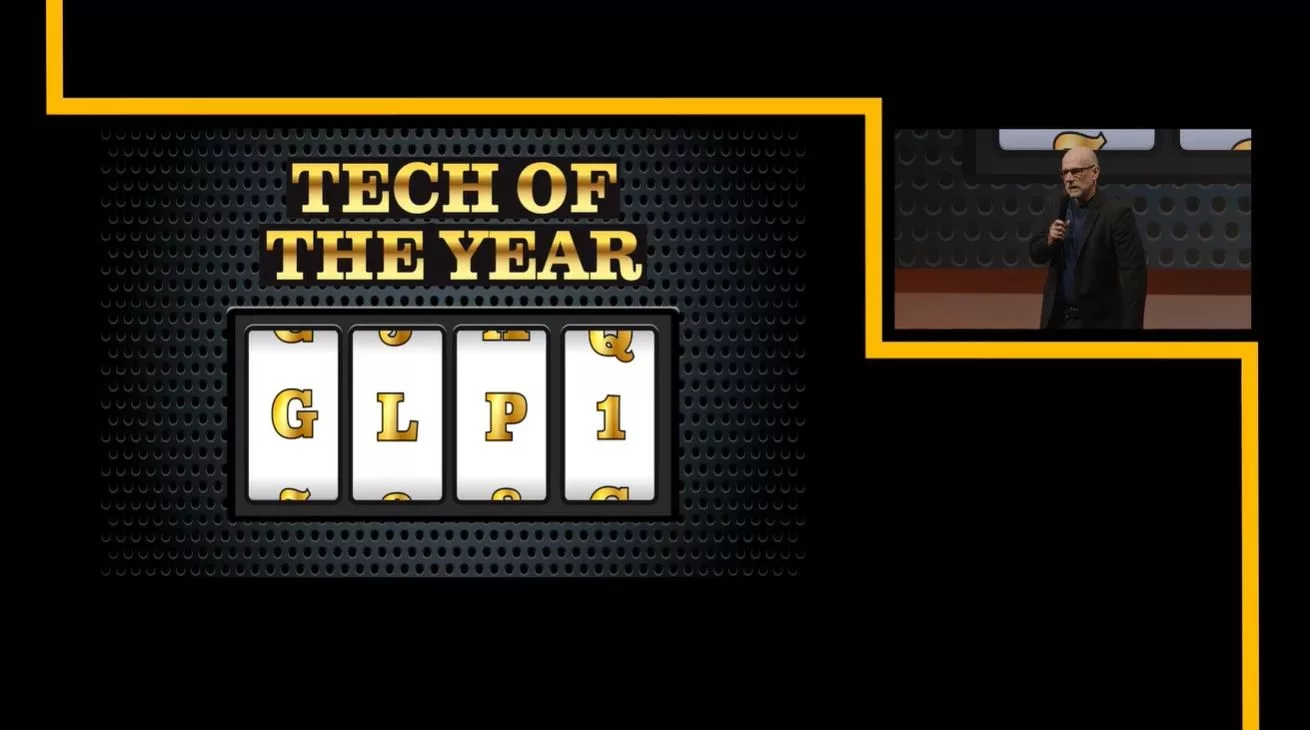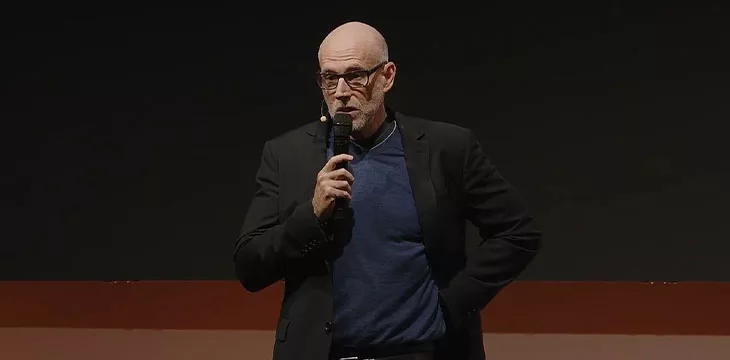|
Getting your Trinity Audio player ready...
|
The first keynote speaker on the first day of the London Blockchain Conference is bound to inspire intrigue and excitement. This was true as ever at the London Blockchain Conference 2024, as Scott Galloway was charged with kicking off the proceedings.
Galloway is an academic heavyweight. A professor of Marketing at the prestigious Stern School of Business at NYU, Galloway brings the kind of high-level business perspective that has become the core of the London Blockchain Conference over the years.
The thrust of Galloway’s time on stage was spent on his predictions for the coming year. The problem with predictions, Galloway said, is that they’re a terrible business.
“If you get the prediction right, it seems obvious in hindsight. If you get it wrong? Twitter.”

Nonetheless, Galloway quite generously offered six bold predictions that will affect technology in 2024. Some of these he elaborated upon in detail; others spoke for themselves. What were they?
- TikTok pressures Netflix and Spotify is sold to a Western investor
- Reach peak AI valuations
- Tech of the year will be GLP-1 (perhaps the most involved and detailed of Galloway’s predictions)
- Hollywood ecosystem struggles
- Activist investor at WB Discovery
- The biggest impact of AI—loneliness
The bulk of Galloway’s talk focused on points 1, 3 and 6, though the audience could see those subjects crossed over with many of Galloway’s other predictions.
Speaking of TikTok, Galloway expressed disbelief that Western governments have allowed TikTok free license to beam whatever messaging they want into the population without restriction. That TikTok is essentially a piece of weaponized technology controlled by the Chinese Communist Party is a problem, he says.
“It would be like if the Kremlin controlled the BBC, the Financial Times, all at once,” he said.
Western governments are waking up to this, he says. The Biden administration has signed an executive order that makes it look likely that TikTok will be banned, with the European Union close behind.
Viewing habits have also changed, according to Galloway, who described it as a ‘dramatic shift in viewing patterns.’ He points to the Hollywood Strike of last year, which had creatives pick up pickets and demand better conditions at a time when AI threatens to absorb all. However, Galloway says that the anger of these creatives, primarily aimed at Hollywood studios, is better directed at “17-year-olds who don’t want to go to the cinema and would rather watch influencers on TikTok.”
Galloway’s slides paint this picture in grim detail, showing that total viewing hours are being dominated by the likes of MrBeast and other content creators, who serve up bite-sized clips served up by algorithms for instant consumption.
The big losers of this, says Galloway, are ad-supported media. He gives solemn advice to any young person looking to enter the workforce: stay away from any industry that relies heavily on ad revenue.

As for his prediction of the big technology of the coming year, Galloway picked GLP-1. For those fortunate enough to be unfamiliar, this refers to so-called ‘signal’ drugs such as Ozempic, which has taken the world by storm over the past year for its ability to curb food cravings. Its wild success at encouraging weight loss has sent the stock of its manufacturer to the moon, but Galloway says the real downstream consequences of this are yet to be felt.
Among these, Galloway counted the fast food industry, which prints cash based on the floods of people—for instance, the almost 70% of Americans who are overweight or obese—who regularly eat out at the likes of McDonalds. Or the healthcare industry, which is constructed almost entirely on the basis that it gets a continuous supply of unhealthy customers.
“14% of our healthcare costs go to obesity. The only thing Americans share is that 70% are obese or overweight. You can’t find 70% of Americans sharing anything else. Only 55% have a pet. The one thing we share as Americans is that we are really fat, “he explained.
Lastly, Galloway spent time discussing what he sees as one of the most under-discussed and important demographic laggards: young men who are entering a world that, for the first time (other than during world wars), will offer less in the way of opportunities than it offered their parents. As a result, young men are withdrawing from society, consigning themselves to the basement to spend their hours in virtual worlds.
“1 in 7 men don’t have a single friend. 1 in 4 can’t name a best friend.”
Though Galloway doesn’t use these words, AI is an accelerant poured over a steadily burning fire when it comes to this problem. It facilitates a workforce that works entirely in isolation, it replaces real-world interaction with virtual friends and girlfriends.
This part of Galloway’s talk fed into a Q&A session, during which Galloway coolly and easily took questions from the crowd. At one point, this forced him to admit that he doesn’t see much value in blockchain in terms of utility but does think that the associated zeitgeists—NFTs, meme stocks, and the like—are an expression of the same disenfranchisement that’s leading to the loneliness epidemic.
“I see a social movement,” he said.
“Crypto has become a revolution where young people have said, ‘I need my own asset classes to get wealthy because I can’t trust boomers to make forward-leaning investments to make sure I have the same prosperity as you had.'”
“I see a generation that has been so screwed by my generation that they’re gong to invent their own asset classes because they want the same shot at prosperity I had.'”
In closing, he was asked what advice he’d give to his kids: What skills should they acquire to prepare for the new world? It’s not learning Mandarin or computer science, says Galloway. It’s communication.
“The key attribute, the key skill you want to develop in all your kids that will endure the test of time is storytelling. Their ability to communicate their ideas and compel someone to invest in them. To compel someone to hire them. Compel someone to work with them. To have a coffee with them.”
Watch: What is blockchain-powered gold and can you buy coffee with it?

 03-04-2026
03-04-2026 




